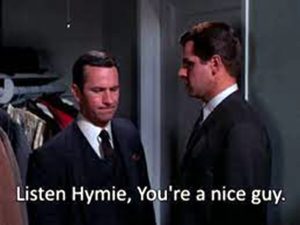
Most of the PPC accounts I’ve managed are only precise and productive if they’ve made significant use of negative keywords. A mix of match types helps with breadth of search query coverage, but the side effect of that is that you risk wasting funds on a significant number of nonperforming queries.
The PPC industry’s legendary teacher Matt Van Wagner always pointed out that campaign structures, to maintain their logic, must continually employ negative keywords – using basketball analogies as only a 5’9” point guard can do – to pursue tactics of “boxing in” and “boxing out.”
While that all might sound a little mysterious, let’s explain it another way. Your adgroups (and at a higher level, campaigns) should have some thematic integrity. If you’re looking to match reasonably closely to your core theme of “rice flake breakfast cereal,” and you also have more general adgroups for “toasty crunch-eating,” and also a separate product called “big round rice puffies,” you do *not* want user queries mapping to the slightly-off-intent keywords, ads, and landing pages. This is a recipe for lower conversion rates, worse Quality Scores, and ultimately, higher costs.
What do I mean by “off-intent”? For advanced account managers, consumer intent is mined across a fairly wide spectrum, with specific bids, ad copy, landing pages, etc., doing quite specific jobs. Money isn’t money, if you’re our client. (“Oh, we made a sale! Yay!” is not actually how business operates. It’s a nice approximation, but if you get into the details, money isn’t money isn’t money, and if you know that, well… you’ll make more money. See what I mean?) So highly general consumer queries (say “what’s a great stretchy apparel brand”) might wisely be met with bids, ad copy, landing pages, and overall strategy specific to a campaign tailored to them. If consumers typing that same query get shown an ad in the football helmets campaign or see a Shopping ad for a ($500) signed stretchy jersey that happens to cost $5.86 per click, the off-intent interaction is (on average) highly inefficient. Multiply that inefficiency by 10,000 (add a zero or two if you like), and you’ll experience mysteriously degrading aggregate performance without being able to put your finger on the source.
Machine-learning algorithms (of which improved query mapping associated with search advertising match types must certainly be considered a subset) are intended to be both inquisitive and greedy. They want to sift and sort through mountains of data to learn how to do their appointed task better.
Unfortunately, bots lack subtlety – they can be single-minded and literal-minded. When Maxwell Smart tells the robot Hymie to “kill the lights,” he pulls out his gun and does just that.

Thus, Google’s match types may take a devil-may-care attitude to your carefully-honed campaign structure. Computers are “smart,” but they’re not as intelligent as you about some things. They don’t have ideas like you do.
At Page Zero Media and similar detail-oriented marketing agencies, PPC pros have to be on the lookout for queries bleeding across distinct campaigns and distinct adgroups, mysteriously hampering performance and generating misleading reporting.
It can get pretty nasty with Smart Bidding, in particular. There, bid control flies out the window. Out-of-place queries can certainly convert to sales or leads, but if our target is conversions or revenue, the result is that these queries can be bid too high for where they are mapping. They shouldn’t be mapping there at all, outside of the odd exception.
Google moves the cheese
For many years, we’ve relied on search query data to keep our account taxonomies flying on the straight and narrow. That contributed to our clients’ strong financial performance.
And then Google not only moved our cheese, they took away the knife and cutting board and no small number of delicious crackers.
In September 2020, when Google Ads went through its latest rounds of alterations to the relatively settled keyword, match types, and query reporting environment, a number of observers made dire predictions about account manageability and ROI. Some of these cited immediate pain.
The most touted change was a draconian reduction in reporting lower-volume queries in the Search Terms Report. For a year, we were flying relatively blind in our keyword strategies and with regard to account structure.
There’s good news to report. Le retour du fromage was announced on Sep. 9, 2021. And it was the pleasure of the author of the above-cited Search Engine Land piece, Ginny Marvin, to tweet out the restoration of the lion’s share of the data… from her new position as Ads Product Liaison at Google.
Slight catch. You have the information. I bet you said to yourself on Sep. 9, 2021, “I sure forgive you, Google, and tomorrow and every day after that I will leap right back into the reporting and take advantage of every shred of the returned data!”
Alas, the September weather was nice, and your social media bickering and something called “shows” seemed more interesting than this type of data mining. “I’ll get to it tomorrow,” you said.
Ahem. It’s tomorrow.
There are some subtleties around how much historical data you can expect to be restored – some of it may never be, or some of it may vanish again (very soon). Nonetheless, new query data (and more and more of it over time) will “begin to meet Google’s privacy standards.” That’s actionable, from where I sit. As you begin to reacquaint yourself with a cherished PPC staple, the Search Terms report, any action you take will apply to recent consumer behavior.
What’s your motivation?
5 years later…
Consider accounts (small, mid-sized, or large, but in particular the latter two) that you or your colleagues once thought you had a handle on five years ago. Here’s a fraction of the developments in that time frame that might have disrupted the account’s query flow, and the various assumptions you have made around how different parts of the account function, over that period of time:
- Smart Bidding led to a degree of ignorance about how keywords perform within and across adgroups, and across various campaigns;
- Changes in match type function upset your carefully honed adgroup structure, leading to spikes in strange query mapping;
- You, a colleague, a client, your Google and Microsoft reps, or some other mysterious force, tinkered with myriad different campaign types. How queries get allotted mostly just shifts around – there might be little net new business created out of it. That “managing on quicksand feeling” starts to intensify.
- You come off Smart Bidding and on again. You go to Smart Bidding rehab. You relapse.
- Shifts in consumer behavior occur quarterly until you’ve been through 20 quarters’ worth of change. How time flies!
- Your understanding of the propensities for high lifetime values prospects develops. You would act on certain product queries differently today than you would have five and ten years ago.
- Attribution gets squinched by privacy concerns and you turn to a lot more directional analysis and guessing; you solve some but not all of this.
- The Search Query report loses 85%+ of its useful data, so (against your will) you stop using it as you once did to establish order and taxonomic rigor in your account(s). This carries on for a year.
- Google continually changes the rules around match types, to the point of collapsing phrase match and BMM into a single match type. As they state: “The updated phrase match simplifies match types by combining the control of phrase match, and the expanded reach of the discontinued broad match modifier. The new phrase matching behavior is more expansive than the former phrase match, and slightly more restrictive than the discontinued BMM.” Clear as a bell, right? I can totally understand the rationale behind the dozens of changes to match type function over the years. Maybe they just sunsetted BMM because “broad match modifier” was a misleading and uninformative name for that type of broad match all along (I always nicknamed it “original broad match a bit closer to the way it’s supposed to work, unless Google is lying”). For whatever reason, it’s bye-bye plus signs. (The keywords still “work” if you leave them in the account as-is, fortunately – they just work differently).
- You lose some of your personal PPC mojo and style. You sometimes pause or add keywords to respond to the changes, but you’re not as sure of yourself as you once were.
- Bam! The search query data comes back! It’s like looking under the hood of a car that runs on 30,000 different fluids, but for a year you weren’t able to open the hood and all of the gauges failed to report on fluid levels. It’s a mess in there. You almost wanted to believe things were fine (when you didn’t really know). But they weren’t.
Time to face the facts: you missed the “old you,” the proactive PPC pro who thrived on data and control. And you relish the job ahead.
With the competitiveness of the ad auction and the efforts Google has made to boost CPC’s using all kinds of tricks like anchoring, the mood felt like it was tilting towards “just hanging on,” trying to manage gradually degrading performance. But if there are acute underlying reasons for the degradation, it’s on you – once again, as you have always done as a proactive PPC professional – to dig in, weed the garden, and create a healthy environment for client growth. (Yeah, yeah, the grease monkey wandered into the backyard, changed metaphors, and got a green thumb.)
Whether at the campaign or adgroup level, like it or not (ohhhh, admit it, you like it), you’ll be spending a lot of quality time with the Search Terms report until equilibrium and order is restored. It’s not 2017 anymore. Your accounts need you.
Read Part 50 on February 3, 2022